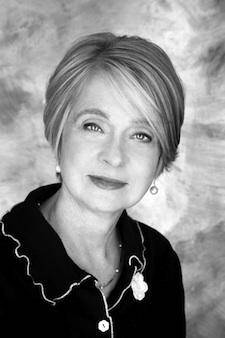What makes for a good life? I’ve been asking people that recently, and I’ve been surprised by some of the answers. The most unexpected came from an 87-year-old lapsed Catholic, who said: “I think a good life is one where you find out who you really are. We are all so different. ”
A few weeks before this conversation, I had been in Boston and stopped by Still Harbor, a spirituality institute that tries to straddle the divide between the religious and secular world. Located in a former Catholic convent, Still Harbor has its roots in Christian spirituality but is purposefully unaffiliated with any faith. It’s neutral space open to anyone in search of enhanced understanding of self, values, calling.
“We’re trying to bridge that gap between where the church is and where the population is,” said Edward M. Cardoza, the founder and director. “The population is not in most churches.”
That is increasingly true. According to the Pew Center on Religion and Spirituality, the United States is becoming a more secular society. A fifth of all Americans and a third of Americans under age 30 are religiously unaffiliated. Under 10 percent during the 1970s and 1980s, the non-affiliated, or “nones,” have been growing steadily since the 1990s. Most are not religious seekers looking for the right church to join. Only 10 percent of the nones report an interest in this.
The secular drift of American society was brought home to me when my god-daughter recently became engaged. She attended an Episcopal elementary school and a Catholic high school before college. Her fiancé went to Catholic schools and university. They are not planning a church wedding, nor do they plan to have a priest or minister administer their vows. It will be a big wedding but not a religious one. Young people these days see marriage more as a civil institution, I was told.
But if Americans, especially young Americans, are turning away from the church, that does not mean there’s no need for spiritual grounding. Indeed, it’s because there is, among both the churched and unchurched, that Still Harbor was founded. It offers spiritual formation to individuals and organizations seeking to discern their purpose or deepen their capacity, hosts an intentional community and offers a practicum in spiritual direction.
“We see a big emphasis on people going to college, a big emphasis on people having professional experience, but education and a job are not enough to make people feel whole and of service to the world,” said Charles Howes, the center’s deputy director. “The third missing component is a spiritual life or interior life to integrate the other two.”
Cardoza, Jesuit-educated and a former Catholic seminarian now preparing for ordination in the Episcopal Church, notes that these days, with the liberal arts in eclipse, students can graduate from college without taking any English or philosophy classes that pose the central questions of life: What is justice? Who are you? What do you want to do? Why are you here?
The big questions of life do not go away with time. Often they become more urgent. How much does the average church help the person in the pew who is facing them? Our life choices are personal, shaped by who we are as individuals, but I’m not sure many churches acknowledge individuality, much less encourage it. Discernment, interior life, spiritual formation, contemplation, even vocation are words I seldom hear in church. One hears them at places like Still Harbor, but unless one goes there, would a Catholic be familiar with them?
The gulf between the discussions at a retreat house and those in church could lead one to suppose there are two types of Christianity: a kind of perfunctory, rote religion communicated in churches and a deeper soulful strain reserved for the cognoscenti in seminaries, convents, monasteries and retreat centers. Would parishes benefit if they emulated more the latter? I think so. Opening a library, offering spiritual direction or classes could be more helpful to worshippers than a remodeled building or another Mass.
How do you make faith meaningful in a society growing increasingly religiously pluralistic and disengaged? I think the answer lies more in plumbing depths than skirting them.
I go back to the 87-year-old “none” who spoke of the journey of discovery we’re all on.“We’re all so different,” she said. “No leaf is like another. Nobody has another’s DNA. That to me is a God thing. Why don’t we celebrate it?”








